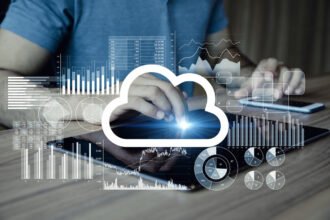Have you heard the joke about economists? Most of them are calling them an “iconomist” because they did not foresee the 2009 global credit crisis. Could they have benefited from using more robust analytics than what they relied on?
Have you heard the joke about economists? Most of them are calling them an “iconomist” because they did not foresee the 2009 global credit crisis. Could they have benefited from using more robust analytics than what they relied on?
As volatility increases – such as oil prices, foreign currency exchange rates, commodity prices, Euro country instabilities, Gulf nation unrest, and tsunamis – the task of macro-economic analysis becomes more challenging. The world is becoming more complicated in part due to the speed at which information flows. The same challenges apply to micro-economics, and that directly impacts the decisions individual commercial companies and public sector government agencies must deal with.
What is an executive to do? There is more uncertainty and risk. My belief is there is not much of an alternative than to become much more analytical. This means digging deeper into the mountains of data one already has as well as becoming more proficient at predicting the future. Unfortunately most companies are far from where they want and need to be when it comes to implementing analytics. They are still relying on gut feeling, rather than hard data, when making decisions. They are short on the skilled talent and the technologies to perform analytics. What is needed by executive leaders is to create a culture for metrics in their organizations.
Creating a culture for metrics
But what does this mean? It means that high-performing enterprises should build their competitive strategies around data-driven insights that generate results from the power of analytics of all flavors, such as segmentation and regression analysis. Commercial companies need to successfully leverage data to out-think, out-smart, and out-execute their rivals. Public sector organizations need to get more yield from their resources – more with less.
To create a culture for metrics also means clarifying some of the confusion in the marketplace about analytics, especially predictive analytics. For example, there is confusion about the difference between forecasting and predictive modeling. Here is a quick analogy to illustrate the difference:
• Forecasts tell you how many ice cream cones will be sold in July, so you can set expectations for planned costs, profits, supply chain impacts and other considerations.
• Predictive models tell you the characteristics of ideal ice cream customers, the flavors they will choose and coupon offers that will entice them.
If your goal is to do a better job of buying raw materials for the ice cream and to have them at the factory at the right time, your company needs a forecasting solution. If the marketing department is trying to figure out how, where and which most attractive customers to market the ice cream, it needs predictive modeling.
Predictive analytics and risk management
Consider these real-world forecasting examples. The hospitality industry uses forecasting to determine demand for particular rooms or properties. Financial companies use it to generate accurate sales forecasts, which feed into the planning process. Retailers create forecasts to manage pricing, staffing and inventory.
Predictive modeling delivers a different set of answers. In retail, predictive modeling identifies the most profitable customers and the underlying reasons for their loyalty. In finance, credit scoring is a type of predictive modeling used to grow customer profitability and reduce risk exposure. In the life sciences, it helps companies find promising new molecular drug compounds.
Another source of confusion involves risk management. It is not only about minimizing an organization’s risk exposure. Quite the contrary, it is all about exploiting risk for maximum competitive advantage. A risky business strategy and plan always carries high prices. Effective risk management practices are comprehensive in recognizing and evaluating all potential risks. Its goal is less volatility, greater predictability, fewer surprises, and arguably most important the ability to bounce back quickly after a risk event occurs.
A simple view of risk is that more things can happen than will happen. If we can devise probabilities of possible outcomes, then we can consider how we will deal with surprises – outcomes that are different from what we expect. We can evaluate the consequences of being wrong in our expectations. In short, risk management is about dealing in advance with the consequences of being wrong. Most organizations can not quantify their risk exposure and have no common basis to evaluate their risk appetite relative to their risk exposure. Risk appetite is the amount of risk an organization is willing to absorb to generate the returns it expects to gain. The objective is not to eliminate all risk, but rather to match risk exposure to risk appetite.
Twenty years from now will we look back at the last half century and observe there were six IT eras: mainframes, minicomputers, PCs, ERP, the Internet, and now analytics? Forecast, predictive model, or speculation? My crystal ball is clear. Analytics will become mainstream.







